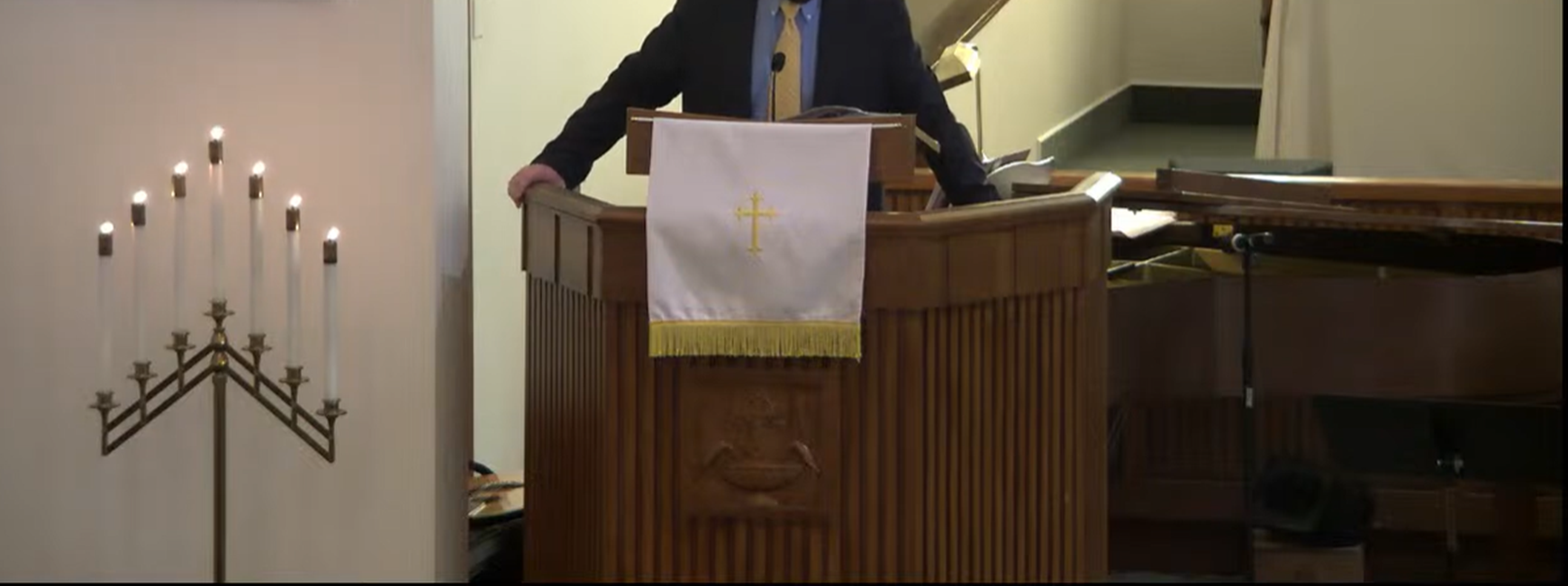The Second Helvetic Confession is less well-known than the Westminster Confession of Faith or the Heidelberg Catechism, but with its Swiss roots and direct connection to John Calvin through Calvin’s correspondence and friendship with its author Heinrich Bullinger, the Second Helvetic Confession should not be overlooked in its importance to the Reformed faith.
I’ve been thinking about the Second Helvetic this week. Specifically, I have thought about one of the most famous lines from the Confession. In the first chapter, Bullinger asserts that the Scriptures are the true word of God. Nothing in that statement that anyone who claims “sola scriptura” would dispute. But before the chapter ends, he also says, “Wherefore when this Word of God is now preached in the church by preachers lawfully called, we believe that the very Word of God is proclaimed, and received by the faithful…”
When we worshiped in Ossian, Indiana, on Sunday, I heard the very Word of God. I heard it again on Monday when I listened to Sunday’s sermon from a pastor who is a close friend but who lives far away.
Before I tell you about how I heard God’s Word this week, a few thoughts on the words from Heinrich Bullinger’s Second Helvetic Confession:
- Bullinger does not claim that all sermons are the Word of God. A self-help message or a pastor’s ramblings on current political developments are not sermons, and certainly not the Word of God.
- Bullinger does not claim that all preachers are capable of preaching the very Word of God. He specifies the “lawfully called.” Surely not all who pass their ordination exams are capable of effectively declaring the very Word of God. But neither does the ability to use a concordance qualify one to preach. A preacher’s call is from God and must be confirmed by the inward work of the Holy Spirit and the outward call of a congregation of God’s people. Some preachers were “born to preach;” all preachers must be trained to preach.
- Bullinger reminds us of the responsibility of those of us in the pew to receive the preached Word faithfully. Am I doing my part when I sit in the pew?
Last week I wrote about an upcoming presbytery meeting. I attended the Friday and Saturday meeting near Detroit, and it lived up to my expectations of good conversation and encouraging friendships. But I drove home feeling troubled. We had received updates on the serious health challenges facing some of our colleagues. Our prayers for their healing seemed almost glib. Likewise, our docket required us to respond to situations of broken relationships and broken promises. Our responses seemed unsure, and it may be that we stumbled in the action we took.
I was troubled.
Sunday’s sermon in Ossian was, as usual, crafted with care and well-delivered. And through it God spoke to me a word of hope in a world troubled by despair. Monday’s recording of a Sunday sermon also brought not only great appreciation of the pastor’s growing homiletic skill but also the very Word of God speaking of healing in a world troubled by brokenness.
Our preacher in Ossian, Indiana, and my close friend far away are not celebrity preachers. They don’t write books and aren’t invited to speak at big conferences. They are preachers lawfully called and used to proclaim the very Word of God.
I would guess there are hundreds of Westminster Presbyterian Churches in the United States alone. Google says there is at least one Heidelberg Presbyterian Church, but that’s because it is in Heidelberg, Mississippi. If I am ever asked to name a church, I might go with Second Helvetic Presbyterian Church. Not only would we be one of a kind, think of the marketing possibilities.

